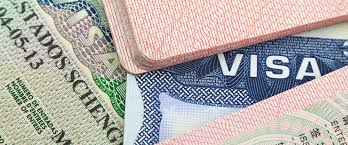Marriage Visa UK: Your Comprehensive Guide

If you are planning to join your spouse or civil partner in the United Kingdom, obtaining a marriage visa (also known as a UK spouse visa) is a crucial step. This visa allows non-UK residents to live with their spouse in the UK, provided they meet the eligibility requirements. This article explores the process, eligibility, requirements, and key considerations for securing a marriage visa UK.
What is a Marriage Visa?
A marriage visa is a type of UK family visa that enables foreign nationals married to or in a civil partnership with a UK citizen or someone with settled status (such as indefinite leave to remain) to live and work in the UK. It falls under the family visa category and is one of the most common pathways for reuniting families.
This visa permits the applicant to stay in the UK for an initial period of 30 months, with the possibility of renewal. After living in the UK for five years on this visa, you may be eligible to apply for indefinite leave to remain (ILR) and eventually British citizenship.
Eligibility Criteria for a Marriage Visa UK
To qualify for a marriage visa, applicants must meet specific eligibility requirements:
Relationship Requirements
- You must be legally married or in a civil partnership recognized in the UK.
- You need to demonstrate that your relationship is genuine and subsisting. Evidence such as photos, communication records, and joint financial commitments can help prove this.
- If you are not married but in a long-term relationship, you must have lived together for at least two years.
Sponsor Requirements
Your spouse or civil partner must:
- Be a British citizen, hold indefinite leave to remain, refugee status, or settled status under the EU Settlement Scheme.
- Meet the minimum income threshold or savings requirement.
Financial Requirements
- The sponsor must earn a minimum of £18,600 per year or have sufficient savings.
- If children are involved, the income requirement increases by £3,800 for the first child and £2,400 for each additional child.
Accommodation Requirements
You must show that you and your spouse have adequate accommodation in the UK without relying on public funds.
English Language Proficiency
- Applicants must prove their ability to communicate in English by passing an approved test or having qualifications from a majority English-speaking country.
Application Process
The application process for a marriage visa can seem daunting, but breaking it down into clear steps makes it manageable:
Gather Documentation
Compile all necessary documents, including:
- Proof of relationship (marriage certificate, photos, communication logs).
- Financial documents (payslips, bank statements).
- Evidence of accommodation (tenancy agreements, property ownership documents).
- English language test results or equivalent qualifications.
Submit the Application Online
Applications are made online via the official UK Visas and Immigration (UKVI) website. Ensure all information provided is accurate and complete.
Pay the Application Fee
The current fee for a marriage visa application from outside the UK is £1,538, while applications made within the UK cost £1,048.
Biometric Appointment
Applicants need to attend a biometric appointment to provide fingerprints and a photograph.
Decision Waiting Time
The standard processing time for a spouse visa application is approximately 8-12 weeks. Priority services may expedite this process for an additional fee.
Common Reasons for Refusal
Visa applications can be refused for several reasons. Knowing these pitfalls can help you avoid mistakes:
- Incomplete or inconsistent documentation.
- Failure to meet financial requirements.
- Insufficient evidence of a genuine relationship.
- Incorrect or outdated information on the application form.
If your application is denied, you can appeal the decision or submit a fresh application. Seeking professional advice may improve your chances of success.
Rights and Benefits of a Marriage Visa
A marriage visa allows you to:
- Live, work, and study in the UK without additional permits.
- Access the NHS for healthcare services.
However, you cannot claim public funds or benefits, so financial self-sufficiency is essential.
Transition to Indefinite Leave to Remain (ILR)
After five years of living in the UK on a marriage visa, you can apply for indefinite leave to remain (ILR). To qualify, you must:
- Continue to meet financial, accommodation, and relationship requirements.
- Pass the “Life in the UK” test.
ILR grants you permanent residency rights, opening the door to British citizenship after 12 months.
Tips for a Successful Application
- Prepare Early
Start gathering documents and meeting requirements well before applying. - Seek Professional Help
Immigration consultants or solicitors can guide you through the process, especially for complex cases. - Double-Check Documents
Ensure all documents are valid, translated (if required), and align with your application. - Provide Detailed Evidence
Strong evidence of your relationship and financial stability increases approval chances.
Conclusion
Obtaining a marriage visa UK is a significant milestone for couples wishing to build a life together in the United Kingdom. While the process can be challenging, understanding the requirements and preparing thoroughly can make it smoother. Whether you are applying for the first time or renewing your visa, following the outlined steps ensures you are well-prepared to achieve a positive outcome.
For the best results, consider seeking professional advice and staying informed about the latest UK immigration policies. Your journey to reunite with your spouse in the UK starts with a successful application, so make every step count!



